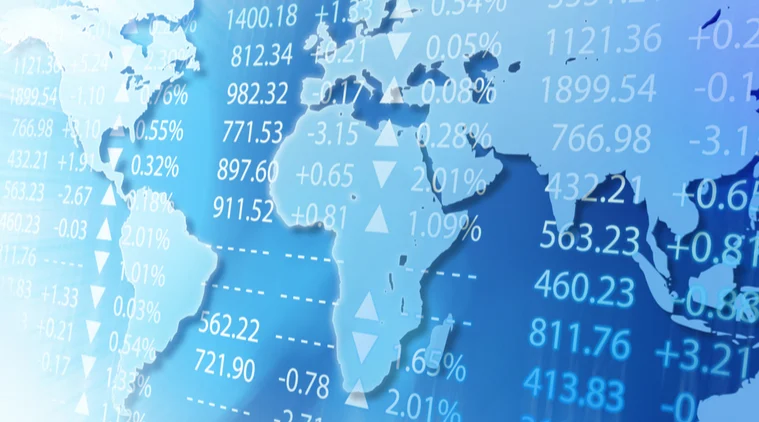Global stock markets experienced significant declines on Wednesday following the implementation of U.S. President Donald Trump’s latest tariff hikes, with shares in both Asia and Europe sliding. The market uncertainty stemmed from the unpredictability of Trump’s trade war strategy. In a recent speech, Trump announced plans to impose tariffs on pharmaceuticals to encourage more domestic production of medications in the U.S.
One of the most notable moves was a 104% tariff on U.S. imports of Chinese goods. However, despite the broader global downturn, Chinese markets rebounded after early losses, buoyed by large-scale share buybacks from state-run investment funds and other government-backed companies. These entities are often instructed to step in and support the market during periods of crisis. Additionally, investors are hopeful that the Chinese government will ramp up spending and introduce other measures to mitigate the effects of the new tariffs, which are expected to heavily impact smaller manufacturers and traders—sectors that typically employ a significant portion of the population.
In Asia, Taiwan’s Taiex index took a sharp 5.8% dive, with the technology sector seeing some of the largest losses. Meanwhile, South Korea’s Kospi index fell 1.7%, prompting the government to announce support for struggling automakers in the region. On the other hand, China’s markets showed resilience, with Hong Kong’s Hang Seng rising 0.7% and Shanghai’s Composite index closing 1.3% higher.
European markets mirrored the global trend of loss, with Germany’s DAX falling 2.4%, France’s CAC 40 dropping 2.4%, and the UK’s FTSE 100 down by 2.2%. Analysts anticipate continued volatility, as the future of Trump’s tariffs remains unclear. If the tariffs persist, they could lead to higher consumer prices in the U.S. and slow economic growth, with some economists even predicting a potential recession. However, if Trump negotiates a reduction of the tariffs, the worst-case scenario could potentially be avoided.
Trump’s trade policies reflect his broader goals of reducing the U.S. trade deficit, but they also challenge the globalized economy that has lowered prices for consumers while outsourcing manufacturing jobs abroad. The future trajectory of this trade conflict remains uncertain, as both sides prepare for more economic disruptions.


